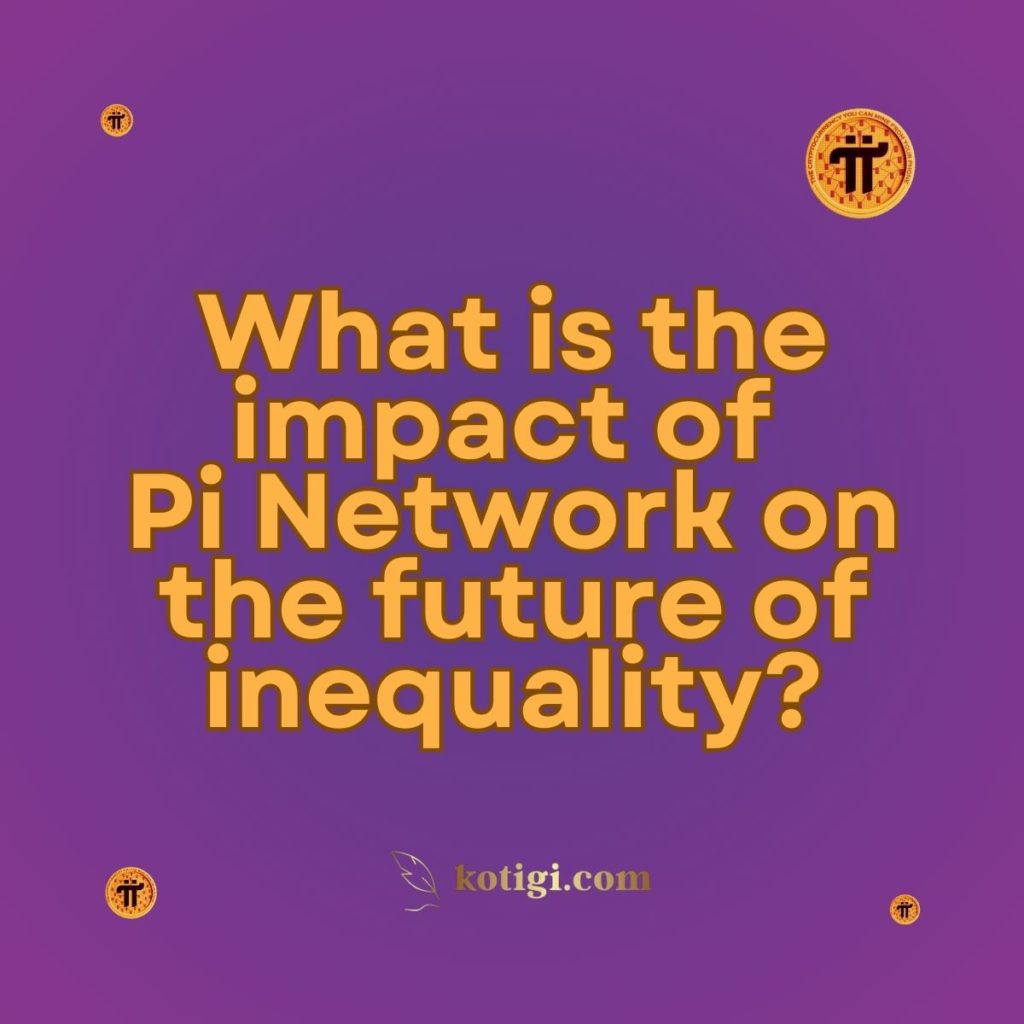
What is the impact of Pi Network on the future of inequality?
The Pi Network has the potential to significantly influence the future of inequality by promoting financial inclusion, empowering marginalized communities, and supporting equitable access to resources. This article explores how the Pi Network could contribute to reducing economic disparities through decentralized finance, community engagement, and innovative solutions.
Introduction
Inequality remains a pressing global issue, manifesting in various forms such as economic disparity, lack of access to resources, and social exclusion. As technology advances, digital currencies and decentralized networks offer unique solutions to address these challenges. The Pi Network, a decentralized digital currency platform, holds the potential to impact inequality positively by promoting financial inclusion, empowering marginalized communities, and supporting equitable access to resources. This article delves into the various ways the Pi Network can contribute to reducing inequality, exploring its role in decentralized finance, community engagement, and innovative solutions.
Promoting Financial Inclusion
One of the most significant impacts of the Pi Network is its ability to promote financial inclusion, particularly for underserved populations.
Access to Digital Currency
The Pi Network allows individuals, especially those without access to traditional banking services, to participate in the digital economy. By enabling users to mine Pi coins using their smartphones, the network provides an entry point for those who may not have had the opportunity to engage with financial systems. This accessibility can help bridge the gap between the financially included and excluded, fostering economic participation among marginalized communities.
Reducing Barriers to Entry
Traditional financial systems often impose high barriers to entry, such as minimum balance requirements and fees. The Pi Network eliminates many of these barriers, allowing individuals to engage in financial activities without significant upfront investment. This democratization of finance enables more people to save, invest, and transact, ultimately contributing to a more equitable economic landscape.
Empowering Micro-Entrepreneurs
The Pi Network can empower micro-entrepreneurs by providing them with the tools and resources needed to start and grow their businesses. By facilitating peer-to-peer transactions and enabling users to accept Pi as a form of payment, the network allows small business owners to reach a broader customer base. This empowerment can lead to increased economic opportunities and reduced inequality within communities.
Supporting Marginalized Communities
The Pi Network has the potential to directly support marginalized communities and help address systemic inequalities.
Creating Economic Opportunities
Through its decentralized platform, the Pi Network can facilitate economic opportunities for marginalized groups. By connecting individuals with resources, funding, and educational materials, the network can empower communities to pursue entrepreneurial ventures and create sustainable livelihoods. This support can significantly reduce economic disparities and promote social mobility.
Enhancing Access to Education
The Pi Network can also play a role in improving access to education and skill development. By providing educational resources and funding opportunities for training programs, the network can help individuals acquire the skills needed to participate in the digital economy. This focus on education is vital for breaking the cycle of inequality and empowering individuals to improve their socioeconomic status.
Fostering Community Development
By encouraging collaboration among users, the Pi Network can support community development initiatives aimed at addressing local inequalities. Users can pool resources to fund projects that benefit their communities, such as infrastructure improvements, health services, and educational programs. This collaborative approach fosters a sense of ownership and responsibility, empowering communities to drive their own development.
Enhancing Economic Equity
The Pi Network can contribute to enhancing economic equity by supporting fair practices and resource distribution.
Encouraging Fair Trade Practices
The Pi Network can facilitate fair trade by connecting producers directly with consumers. This direct trade model allows marginalized producers to receive fair compensation for their goods, reducing the power imbalance often seen in traditional supply chains. By promoting ethical sourcing and fair compensation, the Pi Network supports economic equity and empowers marginalized communities.
Supporting Cooperative Business Models
The Pi Network can foster cooperative business models that prioritize collective ownership and profit-sharing. By encouraging users to form cooperatives and work together, the network promotes a more equitable distribution of wealth. This approach challenges traditional capitalist models that often exacerbate inequality and empowers individuals to benefit collectively from their economic activities.
Promoting Transparent Resource Distribution
The blockchain technology underlying the Pi Network enables transparent tracking of transactions and resource distribution. This transparency can help ensure that resources are allocated fairly and equitably, reducing opportunities for corruption and exploitation. By fostering accountability, the Pi Network can contribute to a more equitable distribution of resources.
Encouraging Collaboration for Equality
The Pi Network can serve as a platform for collaboration among various stakeholders committed to reducing inequality.
Connecting NGOs and Activists
The Pi Network provides a space for non-governmental organizations (NGOs), activists, and individuals to collaborate on initiatives aimed at addressing inequality. By fostering partnerships and sharing resources, stakeholders can work together to develop and implement effective strategies for promoting social and economic equity.
Supporting Inclusive Policy Advocacy
The Pi Network can facilitate discussions and collaborations around inclusive policy advocacy. By connecting users who are passionate about addressing inequality, the network can amplify their voices and support initiatives aimed at promoting equitable policies at local, national, and global levels. This collective advocacy is crucial for driving systemic change and addressing the root causes of inequality.
Fostering Global Awareness
The Pi Network’s global reach enables users to share information, experiences, and best practices related to inequality. By raising awareness and fostering a sense of global responsibility, the network can mobilize individuals to take action against inequality in their communities and beyond. This awareness is essential for building a more just and equitable world.
Conclusion
The Pi Network has the potential to significantly impact the future of inequality by promoting financial inclusion, supporting marginalized communities, and enhancing economic equity. By leveraging blockchain technology and fostering collaboration, the Pi Network can empower individuals and communities to take action against inequality and work towards a more equitable future. As society continues to grapple with the challenges of inequality, harnessing the power of innovative technologies like the Pi Network will be essential for driving meaningful change and promoting social justice.
Key Takeaways
- Promoting Financial Inclusion: The Pi Network provides access to digital currency, reducing barriers to entry for underserved populations and empowering micro-entrepreneurs.
- Supporting Marginalized Communities: The network creates economic opportunities, enhances access to education, and fosters community development initiatives.
- Enhancing Economic Equity: By encouraging fair trade practices and supporting cooperative business models, the Pi Network promotes equitable resource distribution.
- Encouraging Collaboration: The network connects NGOs and activists, supporting inclusive policy advocacy and fostering global awareness of inequality issues.
- Driving Systemic Change: The Pi Network’s innovative approach can contribute to reducing economic disparities and promoting social justice on a global scale.




